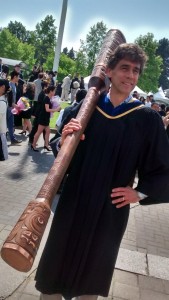Robert Kerrey–Like Drowning Cats
By Rich Gibson
Professor Emeritus
San Diego State University
Robert Kerrey is now appointed to be the top at a new US-sponsored university in Vietnam.
Former Senator Robert Kerrey admitted that as leader of a Navy Seal unit he participated in the murder of civilians in Vietnam. The Seal unit was part of an assassination squad, operating under the guidance of Operation Phoenix which, in the course of the war, killed more than 30,000 Vietnamese, using what its leader, William Colby, called a “scatter-gun approach,” in later congressional hearings. Villagers on the scene say Kerrey’s Seals not only shot more than 100 women and children with automatic fire, but slit the throats of five people, all considered less than human: Gooks, Slants, Slopes, Cong, Charlie, VC.
Kerrey’s admissions came in The New York Times Magazine, a story initially quashed by the television networks. Clearly indictable under existing war crime statutes, Kerrey participated in a cover-up of his unit’s killings for nearly three decades while he used his claims to valour to promote his political career.
Following The New York Times revelations, though, two interesting things happened, both relating to how history is constructed, not only as a vision of the past, but as a call to action in the future. In that context, Kerrey’s thinking about his experience in Vietnam, written not too long after he returned, is instructive.
As the Times article developed, Kerrey and his friends first began to commiserate with one another about the tough times they had, the strain on their consciences, the difficulty they had in living with dirty secrets, how their reputations of valour may be imperfect. Besides, what were we to do when everyone was an enemy? This experience traces the path of many convicted fascist war criminals in Germany who, exposed long after WWII closed, said the same thing.
Second, the debate shifted to who we shall call heroic. The mainstream outlook is now at least two-fold: perhaps nobody, or maybe people like Kerrey since war is hell. Three kinds of heroes are missed altogether.
Certainly those working-class US youth who found themselves enmeshed in a web that led directly to the front lines of battle in Vietnam, those of them who refused to go on burn-all kill-all missions, those who shot their own officers and blew them up in their tents, creating a new word in the lexicon, fragging; those who returned to the US, joined the Vietnam Veterans Against the War, and, denouncing the war, threw their Medals of Honor back at Congress; those young men and women, black and white, like Bill Marshall and Scott Camil, wounded and decorated heroes who rejected the war, are mostly unnoticed.
The working class anti-war movement is almost equally opaque, as if the resistance emanated from Harvard and Columbia, behind the cavalier lead of rich liberal children with bombs like Billy Ayers whose contempt for people sought to substitute explosives for a mass conscious movement. In fact the blue-collar student movements at Wayne State in Detroit, San Francisco State, Kent State, and related schools seriously took up the issues of people who had a lot to lose, whose draft deferments were not coming from counsel with connected pals in the medical school, and who could wield real power by exerting their natural influence in their birth-class. Often under the leadership of Black and Latin youth, those people then led the mass sit-down strikes in auto in Detroit, and the community uprisings throughout the US, while the terrorists hid in million-dollar homes, returning to academic prominence after legal wrist slaps a few years later–now rich liberals without bombs.
Further outside the imperial gaze, even today, is the heroism of the Vietnamese, not only those who Kerrey and many other US officers caught up in the genocidal invasion sought to exterminate, but those who defeated the empire, politically, militarily, and morally, causing imperial troops to run away in their helicopters, pushing their allies off the struts as they ran. Despite every effort to reconstruct that piece of history, whether through relentless Hollywood endeavors to recapture the good old days of World War II, or the repositioning of responsibility to suggest that all US troops in Southeast Asia were war criminals, and hence none of them were, nothing ever will be the same.
At the end of the wars on Vietnam, when the US fled at the end of April, 1975, the US military was in utter collapse, the economy a shambles, the presidency upended by Watergate and the Pentagon Papers, and the campuses in full uproar. Reversing all of that has been a 40 year project, with some success, especially the project to eradicate the memory of the facts of the war itself.
There are no Vietnamese victors on Vietnam Wall, yet millions of them died–and changed the world.
However, for purposes of clarity, it is worthwhile to look back on what Robert Kerrey wrote after he returned from Vietnam, more than twelve years ago, perhaps when his recollections were sharper, less opportunistically censored by the polish of electoral success. This is what Nebraska’s Robert Kerrey said in the opening paragraph of an article titled, “On Remembering the Vietnam War:”
“Around the farm, there is an activity that no one likes to do. Yet it is sometimes necessary. When a cat gives birth to kittens that aren’t needed, the kittens must be destroyed. And there is a moment when you are holding the kitten under the water when you know that if you bring that kitten back above the water it will live, and if you don’t bring it back above in that instant the kitten will be dead. This, for me, is a perfect metaphor for those dreadful moments in war when you do not quite do what you previously thought you would do.”*
Such is the choice, drowning cats or universal solidarity against despotism–and the perversion of academic life.
*The Vietnam Reader, edited by Walter Capps, Routledge, New York (1990)

 Follow
Follow


